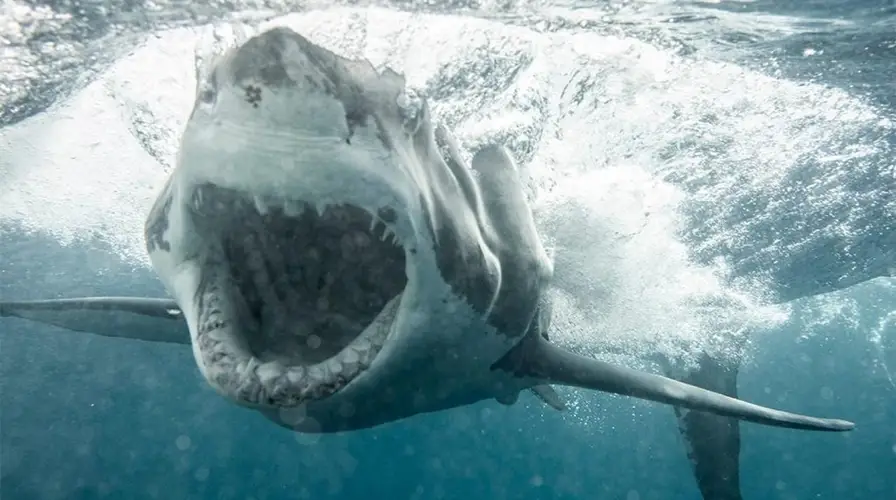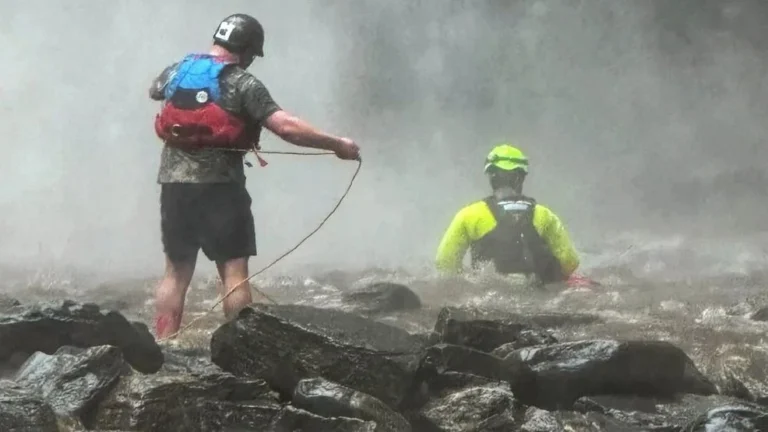Huge Great White Shark Caught on North Carolina Beach as Sightings Surge Along Coast
NORTH CAROLINA – A massive great white shark was caught and released off Cape Hatteras this spring, highlighting a concerning trend: more sharks are being spotted closer to East Coast beaches, and North Carolina is right in the middle of it.
The 12-to-13-foot predator was hooked by two surf anglers fishing for drum and bluefish. The viral moment, captured on video and broadcast by local station WTKR, shows the fishermen reeling in the shark before releasing it safely back into the Atlantic.
Sharks Are Moving Closer to Shorelines
Marine researchers say these sightings aren’t isolated. Experts from OCEARCH and NOAA believe environmental disruptions—like warming ocean temperatures and altered currents—are pushing sharks closer to human-populated coastlines.
“Shark populations are adapting to the new reality,” noted OCEARCH scientists. “The warming seas are changing their traditional migration patterns.”
This comes as shark nurseries like the New York Bight become unstable, forcing young sharks to migrate earlier and further than usual in search of prey and suitable habitats—raising the chances of unexpected human encounters.
North Carolina Hotspot for Shark Activity
In recent months, multiple great white sharks have been tracked along North Carolina’s Outer Banks and near the beach town of Nags Head. One especially notable sighting is of “Scot,” a 12-foot, 1,644-pound adult male shark first tagged in Nova Scotia. Researchers say Scot is heading south toward warmer waters in search of food.
Adding to the concern, OCEARCH also confirmed the return of “Contender,” a 14-foot, 30-year-old shark that had disappeared from trackers before resurfacing near Pamlico Sound on June 7. Since January, Contender has traveled nearly 1,900 miles across the Atlantic.
Beachgoers Urged to Stay Cautious
With beach season in full swing, scientists like Dr. Harley Newton, OCEARCH’s lead veterinarian and shark expert, are urging vacationers to stay alert and informed. She offered safety tips for those entering the ocean:
- Avoid swimming at dawn or dusk
- Stay close to the shoreline
- Swim with a partner
- Refrain from wearing sparkly jewelry, which could attract predators
If you do encounter a shark, Dr. Newton advises to keep eye contact and back away slowly, never turning your back on the animal.
“The ocean is a wild place,” she said. “If you see fish jumping, it might be a good idea to exit the water. Those bait balls are very attractive to sharks.”
Sightings Prompt Community Conversations
The recent sightings are also sparking new discussions in coastal communities. From families reconsidering vacation plans to marine conservationists calling for more education and tracking support, North Carolina’s beaches are becoming part of a broader ecosystem awareness moment.
Despite media sensationalism, experts remind the public that shark encounters remain rare. However, as nature shifts closer to shore, humans must learn to adapt with caution and respect.
Want more updates like this one? Read more breaking wildlife and safety news at SaludaStandard-Sentinel.com.







